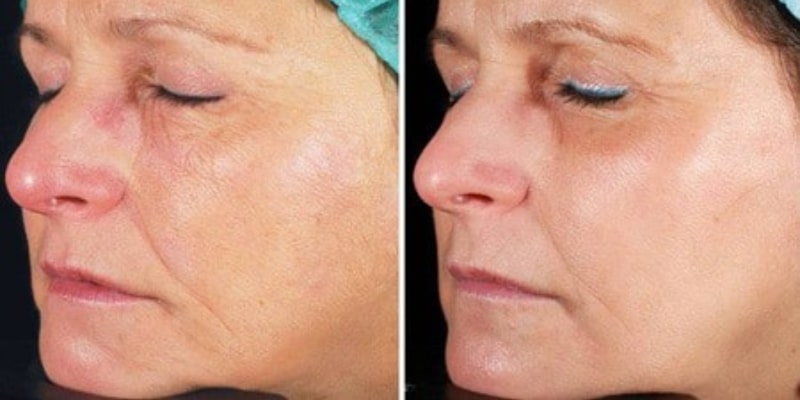In recent years, Holistic Mental Health Care has gained recognition as a comprehensive approach to emotional and psychological well-being. Unlike traditional models that focus mainly on symptoms or medication, holistic care views mental health through a wider lens—connecting the mind, body, and spirit. It emphasizes balance, lifestyle harmony, and personal growth rather than quick fixes. This approach helps individuals not only recover from mental health challenges but also cultivate long-term resilience and self-awareness.
The Core Philosophy of Holistic Mental Health
At its foundation, holistic mental health care is based on the idea that emotional struggles don’t exist in isolation. Mental health issues often stem from a combination of physical, psychological, social, and spiritual factors. Therefore, healing must address all these dimensions rather than focusing solely on symptom management.
Holistic care operates under the belief that when one aspect of our being—such as diet, sleep, stress, or relationships—is out of balance, it can manifest as mental or emotional distress. By restoring balance across all these areas, individuals can experience deeper and more sustainable healing.
Mind, Body, and Spirit: The Three Pillars of Healing
Holistic mental health integrates three interconnected pillars:
1. The Mind
Cognitive and emotional well-being are central to mental health. Therapeutic practices like Cognitive Behavioral Therapy (CBT), mindfulness, meditation, and journaling help individuals identify destructive thought patterns, regulate emotions, and develop coping mechanisms. By nurturing mental clarity and self-awareness, the mind becomes more adaptable and resilient.
2. The Body
The body and brain are deeply connected. Physical health directly impacts mood, energy, and mental clarity. Exercise, balanced nutrition, and adequate sleep form the foundation of holistic care. For example, regular movement releases endorphins that boost mood, while a diet rich in whole foods supports brain function. Additionally, practices like yoga or tai chi improve both physical flexibility and emotional balance.
3. The Spirit
Spiritual health doesn’t necessarily refer to religion—it’s about finding purpose, connection, and inner peace. Many people struggling with depression or anxiety feel disconnected from themselves or the world. Spiritual practices such as meditation, gratitude journaling, or time spent in nature can help rebuild that sense of purpose and belonging.
Together, these three pillars work harmoniously to heal the whole person rather than just addressing the symptoms of distress.
Key Components of Holistic Mental Health Treatment
Holistic care uses a range of therapeutic methods, often customized for each individual’s needs. Some of the most effective include:
1. Mindfulness and Meditation
Mindfulness teaches individuals to stay present in the moment, reducing anxiety about the future and rumination about the past. Regular meditation helps calm the nervous system, lower stress hormones, and promote emotional balance.
2. Nutritional Therapy
Research shows that deficiencies in vitamins, minerals, and essential fatty acids can contribute to mood disorders. Nutritional therapy focuses on restoring balance through whole foods, hydration, and supplementation when necessary. It helps stabilize energy, reduce inflammation, and improve overall brain function.
3. Physical Activity
Exercise is one of the most effective natural antidepressants. Activities such as walking, swimming, or yoga enhance blood flow, release feel-good hormones, and build self-esteem. Even 30 minutes of daily movement can make a significant difference in emotional stability.
4. Creative Therapies
Art, music, and dance therapy give individuals nonverbal ways to process emotions. These approaches are especially helpful for trauma survivors or those who struggle to express feelings through traditional talk therapy.
5. Energy Healing Practices
Techniques like Reiki, acupuncture, and sound therapy are used to balance the body’s energy systems. While they may seem unconventional, many people find them deeply relaxing and emotionally cleansing, complementing other forms of treatment.
6. Nature and Ecotherapy
Time spent in nature has measurable benefits for mental health—reducing stress, lowering blood pressure, and improving mood. Ecotherapy encourages outdoor activities like gardening, hiking, or mindfulness in natural settings to reconnect with the environment and promote calmness.
The Role of Professionals in Holistic Care
A holistic treatment team may include psychiatrists, psychologists, nutritionists, yoga instructors, and even spiritual counselors. This multidisciplinary approach ensures that care addresses all aspects of an individual’s life.
Instead of prescribing medication alone, professionals work collaboratively to design a personalized care plan. Some individuals might focus more on therapy and nutrition, while others may benefit from physical movement and mindfulness training. The goal is not just to alleviate distress but to empower individuals to take an active role in their healing journey.
Integrating Holistic Care in Everyday Life
One of the greatest strengths of holistic mental health care is its focus on lifestyle integration. Healing doesn’t end when a therapy session concludes—it continues through daily choices. Here are a few simple ways people can apply holistic principles at home:
Morning mindfulness: Begin each day with 10 minutes of meditation or deep breathing.
Eat with intention: Choose meals rich in nutrients that fuel both body and brain.
Stay connected: Spend time with supportive people and avoid toxic environments.
Move daily: Engage in any physical activity that brings joy.
Disconnect to reconnect: Reduce screen time and spend more moments in nature.
Small, consistent steps can create meaningful and lasting transformation.
Holistic Approaches in Addiction Treatment
Many modern recovery programs are incorporating holistic methods into addiction care. At an Addiction Treatment Center, holistic therapies complement medical detox and counseling by addressing the underlying causes of substance use.
Substance addiction often stems from emotional pain, trauma, or mental health issues. While traditional treatment may focus on abstinence and behavioral change, holistic care digs deeper—helping individuals rebuild mind-body harmony. Techniques like yoga, meditation, and nutrition therapy reduce cravings, balance brain chemistry, and promote self-awareness.
By healing the emotional and physical imbalances that fuel addiction, holistic programs empower clients to achieve long-term recovery rather than temporary sobriety. This approach also encourages personal responsibility, mindfulness, and emotional resilience—key elements in sustaining a substance-free life.
Benefits of Holistic Mental Health Care
Holistic approaches offer several advantages that extend beyond symptom relief:
Personalized Healing: Each treatment plan is tailored to the individual’s unique physical, emotional, and spiritual needs.
Long-Term Results: By addressing root causes, holistic care reduces relapse rates and promotes sustainable wellness.
Empowerment: Clients learn practical self-care tools that give them control over their well-being.
Improved Physical Health: Nutrition, exercise, and mindfulness practices enhance energy, immunity, and overall vitality.
Emotional Balance: Holistic techniques teach individuals to manage stress and emotions effectively, leading to greater inner peace.
This integrative model helps individuals transform not just how they think, but how they live.
Is Holistic Mental Health Right for You?
Holistic mental health care is ideal for anyone seeking a more natural, balanced, and empowering path to recovery. It’s especially beneficial for those who have tried traditional methods without lasting results, or who prefer to complement medication and therapy with lifestyle-based healing.
If you’re struggling with anxiety, depression, trauma, or burnout, exploring holistic options can open the door to deeper understanding and transformation. Always consult with a qualified professional before making major changes to your treatment plan to ensure safety and effectiveness.
Final Thoughts
Holistic mental health care represents a shift from symptom management to whole-person healing. By uniting the mind, body, and spirit, this approach helps individuals achieve lasting balance and emotional freedom.
True wellness isn’t just the absence of illness—it’s the presence of vitality, purpose, and peace. Whether you’re beginning your journey or looking to enhance your current care, holistic practices can guide you toward a healthier, more centered version of yourself.
When we nurture all parts of who we are, we don’t just heal—we transform.





